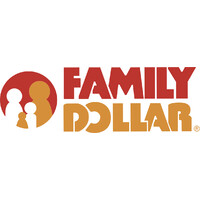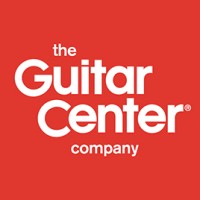
Family Dollar Company Cyber Security Posture
familydollar.comWhen it comes to getting value for everyday items for the entire family in an easy to shop, neighborhood location, Family Dollar is the best place to go. One of the nation’s fastest growing retailers, Family Dollar offers a compelling assortment of merchandise for the whole family ranging from household cleaners to name brand foods, from health and beauty aids to toys, from apparel for every age to home fashions, all for everyday low prices. While shoppers can find many items at $1 or less, most items in the store are priced below $10, which makes shopping fun without stretching the family budget. As shoppers enter their neighborhood Family Dollar, they’ll find great values on the name brands they trust in a clean, well-organized store staffed with friendly team members who are members of the local community. The average size of a Family Dollar store is approximately 7,000 square feet, and most stores are operated in leased facilities. This relatively small footprint allows the Company to open new stores in rural areas and small town, as well as in large urban neighborhoods. Within these markets, the stores are located in shopping centers or as free-standing building and all are convenient to the Company’s customer base. Family Dollar offers a compelling mix of merchandise for the whole family. Ranging from an expanded assortment of refrigerated and frozen foods and health and beauty items to home décor and seasonal items, Family Dollar offers the lowest possible price, the name brand and quality private-brand merchandise customers need and use every day.
Family Dollar Company Details
family-dollar
90901 employees
128286.0
452
Retail
familydollar.com
Scan still pending
FAM_9091707
In-progress
Between 800 and 900
This score is AI-generated and less favored by cyber insurers, who prefer the TPRM score.
 Family Dollar Global Score
Family Dollar Global Score.png)

Family Dollar Company Scoring based on AI Models
| Model Name | Date | Description | Current Score Difference | Score |
|---|---|---|---|---|
| AVERAGE-Industry | 03-12-2025 | This score represents the average cybersecurity rating of companies already scanned within the same industry. It provides a benchmark to compare an individual company's security posture against its industry peers. | N/A | Between 800 and 900 |
Family Dollar Company Cyber Security News & History
| Entity | Type | Severity | Impact | Seen | Url ID | Details | View |
|---|
Family Dollar Company Subsidiaries

When it comes to getting value for everyday items for the entire family in an easy to shop, neighborhood location, Family Dollar is the best place to go. One of the nation’s fastest growing retailers, Family Dollar offers a compelling assortment of merchandise for the whole family ranging from household cleaners to name brand foods, from health and beauty aids to toys, from apparel for every age to home fashions, all for everyday low prices. While shoppers can find many items at $1 or less, most items in the store are priced below $10, which makes shopping fun without stretching the family budget. As shoppers enter their neighborhood Family Dollar, they’ll find great values on the name brands they trust in a clean, well-organized store staffed with friendly team members who are members of the local community. The average size of a Family Dollar store is approximately 7,000 square feet, and most stores are operated in leased facilities. This relatively small footprint allows the Company to open new stores in rural areas and small town, as well as in large urban neighborhoods. Within these markets, the stores are located in shopping centers or as free-standing building and all are convenient to the Company’s customer base. Family Dollar offers a compelling mix of merchandise for the whole family. Ranging from an expanded assortment of refrigerated and frozen foods and health and beauty items to home décor and seasonal items, Family Dollar offers the lowest possible price, the name brand and quality private-brand merchandise customers need and use every day.
Access Data Using Our API

Get company history
.png)
Family Dollar Cyber Security News
Dollar Tree offloads struggling Family Dollar chain for $1 billion
Dollar Tree (DLTR.O) said on Wednesday that a group of private-equity investors would acquire its Family Dollar business for about $1 billion.
Customer Account Takeovers: The Multi-Billion Dollar Problem You Don’t Know About
Over 100K accounts exposed monthly + 1.4% takeover rate + session hijacking = rising fraud & churn risks.
Dollar Tree to Sell Family Dollar Business for $1 Billion - WSJ
Dollar Tree has agreed to sell its Family Dollar business to a consortium of private-equity investors for roughly $1 billion. The sale will ...
Historic $40M gift establishes Bellini College of Artificial Intelligence, Cybersecurity and Computing at USF, solidifying Tampa Bay as “Cyber Bay”
With the opening of the Bellini College in Fall 2025, USF will dramatically expand access to state-of-the-art AI and cybersecurity training, ...
A Multimillion-Dollar Risk: How CEOs Can Better Assess Cybersecurity Threats
Every CEO and CFO understands how to quantify operational risk. Market volatility, supply chain disruptions, and regulatory compliance are ...
Dollar Tree offloads struggling Family Dollar chain for $1 billion
Dollar Tree expects 2025 net sales from continuing operations to be between $18.5 billion and $19.1 billion. The current inflationary ...
$2.3M Sysco data breach class action settlement
Sysco agreed to a $2.3 million class action lawsuit settlement to resolve claims it failed to protect consumers from a 2023 data breach.
New evidence delays trial of Saginaw man accused of shooting man 13 times in Family Dollar
Kinchen is charged with single counts of open murder, carrying a dangerous weapon with unlawful intent, carrying a concealed weapon, felon in ...
Dollar Tree Faces Tightening Consumer Wallets as Multi-Price Strategy Gains Traction
Dollar Tree's multi-price strategy aims to diversify its product range by introducing items priced between $1.50 and $7, without raising prices ...

Family Dollar Similar Companies

PT Lion Super Indo
Sejak tahun 1997, Super Indo telah bertumbuh dan berkembang di Indonesia melalui kemitraan bersama Ahold Delhaize yang berasal dari Belanda dan Salim Group dari Indonesia. Didukung lebih dari 10,000 karyawan* yang terlatih, Super Indo berhasil menyediakan berbagai macam barang kebutuhan sehari-hari

The Guitar Center Company
We exist so music can persist. Our family of brands has put more instruments into the hands of more people than anyone on the planet. Meet the family or, as we call them, The Guitar Center Company. Guitar Center. But there's more to us than guitars and basses. We carry all kinds of musical instrume

Woolworths Supermarkets
There are over 128,000 of us across Australia. We’re in the biggest cities and the tiniest towns. We’re meal creators and digital developers. Number crunchers and fresh food deliverers. Yes, we all have many skills and wear many hats. But we’re all the same team, because we’re all Fresh Food People.

The UPS Store
With more than 5,000 locally owned locations across North America, The UPS Store is the nation’s largest retail network of shipping, postal, printing and business service centers. The UPS Store, Inc., franchisor for The UPS Store locations in the U.S., is a wholly owned subsidiary of UPS. The UPS

Bath & Body Works
We were founded on a simple idea: to make the world a brighter, happier place through the power of fragrance. As we've grown, so has our purpose and today, we help the world live more fully through the power of fragrance. We’re a team that cares about our customers and believes in giving them a rea

Kroger
At Kroger, we believe no matter who you are or how you like to shop, everyone deserves affordable, easy-to-enjoy, fresh food. This idea is embodied in our simple tagline—Fresh for Everyone™. Kroger ranks as one of the world’s largest retailers. We are nearly half a million associates across 2,800

Frequently Asked Questions (FAQ) on Cybersecurity Incidents
Family Dollar CyberSecurity History Information
Total Incidents: According to Rankiteo, Family Dollar has faced 0 incidents in the past.
Incident Types: As of the current reporting period, Family Dollar has not encountered any cybersecurity incidents.
Total Financial Loss: The total financial loss from these incidents is estimated to be {total_financial_loss}.
Cybersecurity Posture: The company's overall cybersecurity posture is described as When it comes to getting value for everyday items for the entire family in an easy to shop, neighborhood location, Family Dollar is the best place to go. One of the nation’s fastest growing retailers, Family Dollar offers a compelling assortment of merchandise for the whole family ranging from household cleaners to name brand foods, from health and beauty aids to toys, from apparel for every age to home fashions, all for everyday low prices. While shoppers can find many items at $1 or less, most items in the store are priced below $10, which makes shopping fun without stretching the family budget. As shoppers enter their neighborhood Family Dollar, they’ll find great values on the name brands they trust in a clean, well-organized store staffed with friendly team members who are members of the local community. The average size of a Family Dollar store is approximately 7,000 square feet, and most stores are operated in leased facilities. This relatively small footprint allows the Company to open new stores in rural areas and small town, as well as in large urban neighborhoods. Within these markets, the stores are located in shopping centers or as free-standing building and all are convenient to the Company’s customer base. Family Dollar offers a compelling mix of merchandise for the whole family. Ranging from an expanded assortment of refrigerated and frozen foods and health and beauty items to home décor and seasonal items, Family Dollar offers the lowest possible price, the name brand and quality private-brand merchandise customers need and use every day..
Detection and Response: The company detects and responds to cybersecurity incidents through {description_of_detection_and_response_process}.
Incident Details
Incident 1: Ransomware Attack
Title: {Incident_Title}
Description: {Brief_description_of_the_incident}
Date Detected: {Detection_Date}
Date Publicly Disclosed: {Disclosure_Date}
Date Resolved: {Resolution_Date}
Type: {Type_of_Attack}
Attack Vector: {Attack_Vector}
Vulnerability Exploited: {Vulnerability}
Threat Actor: {Threat_Actor}
Motivation: {Motivation}
Incident 2: Data Breach
Title: {Incident_Title}
Description: {Brief_description_of_the_incident}
Date Detected: {Detection_Date}
Date Publicly Disclosed: {Disclosure_Date}
Date Resolved: {Resolution_Date}
Type: {Type_of_Attack}
Attack Vector: {Attack_Vector}
Vulnerability Exploited: {Vulnerability}
Threat Actor: {Threat_Actor}
Motivation: {Motivation}
Common Attack Types: As of now, the company has not encountered any reported incidents involving common cyberattacks.
Identification of Attack Vectors: The company identifies the attack vectors used in incidents through {description_of_identification_process}.
Impact of the Incidents
Incident 1: Ransomware Attack
Financial Loss: {Financial_Loss}
Data Compromised: {Data_Compromised}
Systems Affected: {Systems_Affected}
Downtime: {Downtime}
Operational Impact: {Operational_Impact}
Conversion Rate Impact: {Conversion_Rate_Impact}
Revenue Loss: {Revenue_Loss}
Customer Complaints: {Customer_Complaints}
Brand Reputation Impact: {Brand_Reputation_Impact}
Legal Liabilities: {Legal_Liabilities}
Identity Theft Risk: {Identity_Theft_Risk}
Payment Information Risk: {Payment_Information_Risk}
Incident 2: Data Breach
Financial Loss: {Financial_Loss}
Data Compromised: {Data_Compromised}
Systems Affected: {Systems_Affected}
Downtime: {Downtime}
Operational Impact: {Operational_Impact}
Conversion Rate Impact: {Conversion_Rate_Impact}
Revenue Loss: {Revenue_Loss}
Customer Complaints: {Customer_Complaints}
Brand Reputation Impact: {Brand_Reputation_Impact}
Legal Liabilities: {Legal_Liabilities}
Identity Theft Risk: {Identity_Theft_Risk}
Payment Information Risk: {Payment_Information_Risk}
Average Financial Loss: The average financial loss per incident is {average_financial_loss}.
Commonly Compromised Data Types: The types of data most commonly compromised in incidents are {list_of_commonly_compromised_data_types}.
Incident 1: Ransomware Attack
Entity Name: {Entity_Name}
Entity Type: {Entity_Type}
Industry: {Industry}
Location: {Location}
Size: {Size}
Customers Affected: {Customers_Affected}
Incident 2: Data Breach
Entity Name: {Entity_Name}
Entity Type: {Entity_Type}
Industry: {Industry}
Location: {Location}
Size: {Size}
Customers Affected: {Customers_Affected}
Response to the Incidents
Incident 1: Ransomware Attack
Incident Response Plan Activated: {Yes/No}
Third Party Assistance: {Yes/No}
Law Enforcement Notified: {Yes/No}
Containment Measures: {Containment_Measures}
Remediation Measures: {Remediation_Measures}
Recovery Measures: {Recovery_Measures}
Communication Strategy: {Communication_Strategy}
Adaptive Behavioral WAF: {Adaptive_Behavioral_WAF}
On-Demand Scrubbing Services: {On_Demand_Scrubbing_Services}
Network Segmentation: {Network_Segmentation}
Enhanced Monitoring: {Enhanced_Monitoring}
Incident 2: Data Breach
Incident Response Plan Activated: {Yes/No}
Third Party Assistance: {Yes/No}
Law Enforcement Notified: {Yes/No}
Containment Measures: {Containment_Measures}
Remediation Measures: {Remediation_Measures}
Recovery Measures: {Recovery_Measures}
Communication Strategy: {Communication_Strategy}
Adaptive Behavioral WAF: {Adaptive_Behavioral_WAF}
On-Demand Scrubbing Services: {On_Demand_Scrubbing_Services}
Network Segmentation: {Network_Segmentation}
Enhanced Monitoring: {Enhanced_Monitoring}
Incident Response Plan: The company's incident response plan is described as {description_of_incident_response_plan}.
Third-Party Assistance: The company involves third-party assistance in incident response through {description_of_third_party_involvement}.
Data Breach Information
Incident 2: Data Breach
Type of Data Compromised: {Type_of_Data}
Number of Records Exposed: {Number_of_Records}
Sensitivity of Data: {Sensitivity_of_Data}
Data Exfiltration: {Yes/No}
Data Encryption: {Yes/No}
File Types Exposed: {File_Types}
Personally Identifiable Information: {Yes/No}
Prevention of Data Exfiltration: The company takes the following measures to prevent data exfiltration: {description_of_prevention_measures}.
Handling of PII Incidents: The company handles incidents involving personally identifiable information (PII) through {description_of_handling_process}.
Ransomware Information
Incident 1: Ransomware Attack
Ransom Demanded: {Ransom_Amount}
Ransom Paid: {Ransom_Paid}
Ransomware Strain: {Ransomware_Strain}
Data Encryption: {Yes/No}
Data Exfiltration: {Yes/No}
Ransom Payment Policy: The company's policy on paying ransoms in ransomware incidents is described as {description_of_ransom_payment_policy}.
Data Recovery from Ransomware: The company recovers data encrypted by ransomware through {description_of_data_recovery_process}.
Regulatory Compliance
Incident 1: Ransomware Attack
Regulations Violated: {Regulations_Violated}
Fines Imposed: {Fines_Imposed}
Legal Actions: {Legal_Actions}
Regulatory Notifications: {Regulatory_Notifications}
Incident 2: Data Breach
Regulations Violated: {Regulations_Violated}
Fines Imposed: {Fines_Imposed}
Legal Actions: {Legal_Actions}
Regulatory Notifications: {Regulatory_Notifications}
Regulatory Frameworks: The company complies with the following regulatory frameworks regarding cybersecurity: {list_of_regulatory_frameworks}.
Ensuring Regulatory Compliance: The company ensures compliance with regulatory requirements through {description_of_compliance_measures}.
Lessons Learned and Recommendations
Incident 1: Ransomware Attack
Lessons Learned: {Lessons_Learned}
Incident 2: Data Breach
Lessons Learned: {Lessons_Learned}
Incident 1: Ransomware Attack
Recommendations: {Recommendations}
Incident 2: Data Breach
Recommendations: {Recommendations}
Key Lessons Learned: The key lessons learned from past incidents are {list_of_key_lessons_learned}.
Implemented Recommendations: The company has implemented the following recommendations to improve cybersecurity: {list_of_implemented_recommendations}.
References
Additional Resources: Stakeholders can find additional resources on cybersecurity best practices at {list_of_additional_resources}.
Investigation Status
Incident 1: Ransomware Attack
Investigation Status: {Investigation_Status}
Incident 2: Data Breach
Investigation Status: {Investigation_Status}
Communication of Investigation Status: The company communicates the status of incident investigations to stakeholders through {description_of_communication_process}.
Stakeholder and Customer Advisories
Incident 1: Ransomware Attack
Stakeholder Advisories: {Stakeholder_Advisories}
Customer Advisories: {Customer_Advisories}
Incident 2: Data Breach
Stakeholder Advisories: {Stakeholder_Advisories}
Customer Advisories: {Customer_Advisories}
Advisories Provided: The company provides the following advisories to stakeholders and customers following an incident: {description_of_advisories_provided}.
Initial Access Broker
Incident 1: Ransomware Attack
Entry Point: {Entry_Point}
Reconnaissance Period: {Reconnaissance_Period}
Backdoors Established: {Backdoors_Established}
High Value Targets: {High_Value_Targets}
Data Sold on Dark Web: {Yes/No}
Incident 2: Data Breach
Entry Point: {Entry_Point}
Reconnaissance Period: {Reconnaissance_Period}
Backdoors Established: {Backdoors_Established}
High Value Targets: {High_Value_Targets}
Data Sold on Dark Web: {Yes/No}
Monitoring and Mitigation of Initial Access Brokers: The company monitors and mitigates the activities of initial access brokers through {description_of_monitoring_and_mitigation_measures}.
Post-Incident Analysis
Incident 1: Ransomware Attack
Root Causes: {Root_Causes}
Corrective Actions: {Corrective_Actions}
Incident 2: Data Breach
Root Causes: {Root_Causes}
Corrective Actions: {Corrective_Actions}
Post-Incident Analysis Process: The company's process for conducting post-incident analysis is described as {description_of_post_incident_analysis_process}.
Corrective Actions Taken: The company has taken the following corrective actions based on post-incident analysis: {list_of_corrective_actions_taken}.
Additional Questions
General Information
Ransom Payment History: The company has {paid/not_paid} ransoms in the past.
Last Ransom Demanded: The amount of the last ransom demanded was {last_ransom_amount}.
Last Attacking Group: The attacking group in the last incident was {last_attacking_group}.
Incident Details
Most Recent Incident Detected: The most recent incident detected was on {most_recent_incident_detected_date}.
Most Recent Incident Publicly Disclosed: The most recent incident publicly disclosed was on {most_recent_incident_publicly_disclosed_date}.
Most Recent Incident Resolved: The most recent incident resolved was on {most_recent_incident_resolved_date}.
Impact of the Incidents
Highest Financial Loss: The highest financial loss from an incident was {highest_financial_loss}.
Most Significant Data Compromised: The most significant data compromised in an incident was {most_significant_data_compromised}.
Most Significant System Affected: The most significant system affected in an incident was {most_significant_system_affected}.
Response to the Incidents
Third-Party Assistance in Most Recent Incident: The third-party assistance involved in the most recent incident was {third_party_assistance_in_most_recent_incident}.
Containment Measures in Most Recent Incident: The containment measures taken in the most recent incident were {containment_measures_in_most_recent_incident}.
Data Breach Information
Most Sensitive Data Compromised: The most sensitive data compromised in a breach was {most_sensitive_data_compromised}.
Number of Records Exposed: The number of records exposed in the most significant breach was {number_of_records_exposed}.
Ransomware Information
Highest Ransom Demanded: The highest ransom demanded in a ransomware incident was {highest_ransom_demanded}.
Highest Ransom Paid: The highest ransom paid in a ransomware incident was {highest_ransom_paid}.
Regulatory Compliance
Highest Fine Imposed: The highest fine imposed for a regulatory violation was {highest_fine_imposed}.
Most Significant Legal Action: The most significant legal action taken for a regulatory violation was {most_significant_legal_action}.
Lessons Learned and Recommendations
Most Significant Lesson Learned: The most significant lesson learned from past incidents was {most_significant_lesson_learned}.
Most Significant Recommendation Implemented: The most significant recommendation implemented to improve cybersecurity was {most_significant_recommendation_implemented}.
References
Most Recent Source: The most recent source of information about an incident is {most_recent_source}.
Most Recent URL for Additional Resources: The most recent URL for additional resources on cybersecurity best practices is {most_recent_url}.
Investigation Status
Current Status of Most Recent Investigation: The current status of the most recent investigation is {current_status_of_most_recent_investigation}.
Stakeholder and Customer Advisories
Most Recent Stakeholder Advisory: The most recent stakeholder advisory issued was {most_recent_stakeholder_advisory}.
Most Recent Customer Advisory: The most recent customer advisory issued was {most_recent_customer_advisory}.
Initial Access Broker
Most Recent Entry Point: The most recent entry point used by an initial access broker was {most_recent_entry_point}.
Most Recent Reconnaissance Period: The most recent reconnaissance period for an incident was {most_recent_reconnaissance_period}.
Post-Incident Analysis
Most Significant Root Cause: The most significant root cause identified in post-incident analysis was {most_significant_root_cause}.
Most Significant Corrective Action: The most significant corrective action taken based on post-incident analysis was {most_significant_corrective_action}.
What Do We Measure?
















Every week, Rankiteo analyzes billions of signals to give organizations a sharper, faster view of emerging risks. With deeper, more actionable intelligence at their fingertips, security teams can outpace threat actors, respond instantly to Zero-Day attacks, and dramatically shrink their risk exposure window.
These are some of the factors we use to calculate the overall score:
Identify exposed access points, detect misconfigured SSL certificates, and uncover vulnerabilities across the network infrastructure.
Gain visibility into the software components used within an organization to detect vulnerabilities, manage risk, and ensure supply chain security.
Monitor and manage all IT assets and their configurations to ensure accurate, real-time visibility across the company's technology environment.
Leverage real-time insights on active threats, malware campaigns, and emerging vulnerabilities to proactively defend against evolving cyberattacks.




